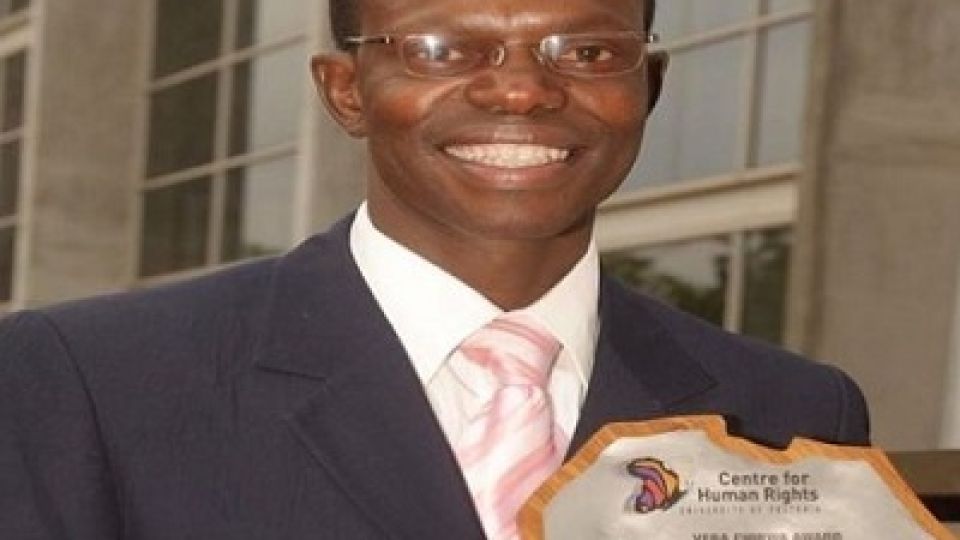from SAMBULO DLAMINI in Mbabane, Eswatini
Swaziland Bureau
MBABANE, (CAJ News) – A DEADLY crisis triggered by the killing of a law student is spiraling out of control with the murder of a prominent lawyer in Eswatini, Africa’s last absolute monarchy.
Last Saturday, Thulani Maseko, the top human rights defender, was shot dead in the presence of his family when gunmen besieged their home in the western town of Luyengo, some 50 kilometres from the capital, Mbabane.
The killing of the 52-year-old is the latest tragic twist to the civil strife in Eswatini where King Mswati III is under pressure to uphold human rights and effect democratic reforms.
Maseko’s murder, at a time when the situation was already volatile, has further driven a wedge between the heavy-handed monarchy on one side and the opposition, civil society as well as a guerilla movement on the other.
This follows allegations that he was assassinated by so-called hitmen hired by the king to eliminate pro-democracy voices. Critics allege police escorted the assassins.
At the time of his death, Maseko headed the Multi-Stakeholder Forum (MSF), a movement of political parties and civil society groups leading the campaign for democracy in the country whose crisis is arguably the world’s most neglected catastrophe in recent times.
He represented members of parliament, Mthandeni Dube and Bacede Mabuza, who are on trial for offences allegedly committed during the civil unrest that rocked Eswatini in 2021
A day before Maseko was killed, King Mswati III was quoted in a public address threatening that critics advocating calling for democratic reforms would be “dealt with.”
In 2014, Maseko was sentenced to two years in prison for contempt of court after publicly criticising what he perceived as the judiciary’s lack of independence and integrity.
Amnesty International declared him a Prisoner of Conscience.
The murder has sent shockwaves locally and beyond Eswatini borders.
It marks the first time since the onset of the crisis that King Mswati III’s administration has come under international criticism for its excesses.
The African Commission on Human and Peoples’ Rights condemned the killing.
“Under no circumstances should intimidations, threats, actual violence or the killing of any activist, or human rights defender be ignored by state authorities,” it stated.
Clement Volue, the United Nations Special Rapporteur Freedom of Association, expressed sadness.
“I strongly condemn this act,” the UN envoy censured.
Flavia Mwangovya, Amnesty International’s Deputy Director for East and Southern Africa, said the cold-blooded murder offered a chilling reminder that human rights defenders, especially those at the forefront of calling for political reform in Eswatini, were not safe.
“If they are not being persecuted, harassed or intimidated by the state, they are at risk of losing their lives,” Mwangovya said.
All called on the government to promptly initiate investigations.
However, deaths during the crisis have rarely been investigated, further eliciting anger among protesters and government critics.
The government warned against those it alleged were behind “speculations” and “insinuations” on social media linking it to the murder.
“Again, government distinctly disassociates herself and the country’s authorities from these heinous acts,” said Alpheous Nxumalo, government spokesperson.
“Such speculations are dangerous as they hamper investigations and take the attention away from the real criminals,” Nxumalo added.
Last week, the government also dismissed allegations of hiring hitmen and mercenaries.
Government forces are involved in battle with a guerilla outfit, the Swaziland International Solidarity Forces (SISF), which has engaged in retaliatory attacks against state security and perpetrating arson at establishments linked to the king.
It has claimed responsibility for the murder of members of the uniformed forces.
William Dlamini, National Commissioner of the Royal Eswatini Police Service, described 2022 as a “difficult” year for the service.
He disclosed that during the period, the police force lost 23 officers through death, 11 of which were shot by criminals.
“We note the bravery displayed by our officers. They restrained themselves even in the face of extreme provocation,” Dlamini said.
Police are nonetheless seen as partisan to the government of Mswati III and allegedly involved in the kidnapping and murder of critics.
In 2021, the death of law student, Thabani Nkomonye, allegedly at the hands of police, triggered the ongoing, and worsening, crisis in the kingdom of some 1,19 million people.
Local socio-political commentator, Comfort Ndzinisa, said of Eswatini, “This country is so unsafe.”
“The sad thing is that we fear the police more than criminals. The unfortunate part is that we are scared to say we are scared.”
Born Makhosetive Dlamini, Mswati III (aged 54) has been at the helm of the former Swaziland from 1986, when he was only 18.
A polygamist, he succeeded his father, King Sobhuza II, who banned political parties in 1973.
– CAJ News

